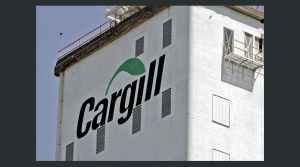


(Posted on 08/01/20)
Cargill has reported results for the fiscal 2020 second quarter ended Nov. 30, 2019.
“We saw very good execution from our global teams throughout the quarter, as they focused on delivering what matters for our customers,” said Dave MacLennan, Cargill’s chairman and chief executive officer. “Our ongoing transformation, as well as recent acquisitions and expanded capabilities, are all helping us continue to raise our performance.”
Key measures include:
Adjusted operating earnings were $1.02 billion, up 19% from $853 million last year. For the first half of the year, this brought adjusted earnings to $1.93 billion.
Net earnings on a U.S. GAAP basis for the quarter were $1.19 billion, up 61% from a year ago. The increase included gains from divesting Cargill’s malt business and financial subsidiary, CarVal Investors. Net earnings for the first half climbed 20% to $2.11 billion.
Second-quarter revenues rose 4% to $29.2 billion. Six-month revenues totaled $58.2 billion, a 3% rise.
Adjusted operating earnings increased in two of Cargill’s four business segments: Animal Nutrition & Protein, and Industrial & Financial Services. They declined in Origination & Processing and Food Ingredients & Applications. Notable results include:
Cargill’s protein businesses around the world were well prepared to meet opportunities from country-by-country changes in demand, shifts in global protein flows due to African swine fever and other market forces.
Transformation efforts, recent acquisitions and capital investments all had positive impacts in businesses like animal nutrition and global poultry. Likewise, the ocean transportation business benefited from its readiness for the upcoming industry shift to low-sulphur fuels that began on Jan. 1, 2020.
The company’s agricultural trading business stayed well-positioned across commodities, while some of the regional origination and processing businesses continued to feel the negative impact of trade uncertainty and weather disruptions, particularly in North America.
Several global product lines of food ingredients saw softer results, including starches and sweeteners in Europe and Brazil, and edible oils in South America. Strong product deliveries kept cocoa and chocolate results near even with last year.
The beneficial impact of wintry weather combined with production efficiency gave a boost to road safety salt results.
Cargill and joint venture partner Royal DSM began commercial-scale production of EverSweet stevia sweetener in November at Cargill’s $50 million fermentation facility in Blair, Nebraska – the first of its kind in the U.S. This zero-calorie sweetener uses fermentation to create the two best-tasting molecules in the stevia leaf. In addition to providing scale, fermentation is much more sustainable than traditional leaf-based production, since these molecules make up less than 1% of the stevia leaf in nature.
The National Grain and Feed Association (NGFA) has applauded Senator Deb. Fischer’s (R-Neb.) reintroduction... Read more
Anglo American plc and Teck Resources Limited have received regulatory approval from the Government... Read more
The Rhodes Ridge Joint Venture has approved a $191 million (A$294 million) (Rio Tinto share $96 million... Read more
Trafigura Group Pte Ltd, a global leader in the commodities industry, has announced its financial results... Read more
Rio Tinto has successfully produced the first copper from the Johnson Camp mine in Arizona using its... Read more
The American Soybean Association’s World Initiative for Soy in Human Health programme and the... Read more
Karlka Nyiyaparli Aboriginal Corporation (KNAC) Registered Native Title Body Corporate and Rio Tinto... Read more
OCI Global, a leading global producer and distributor of nitrogen products has announced that it has... Read more
In December 2024, SSAB was granted a permit by the Land and Environment Court at Umeå District... Read more
The President of the Republic of Guinea has joined project partners WCS1, Baowu, Chinalco and Rio Tinto... Read more